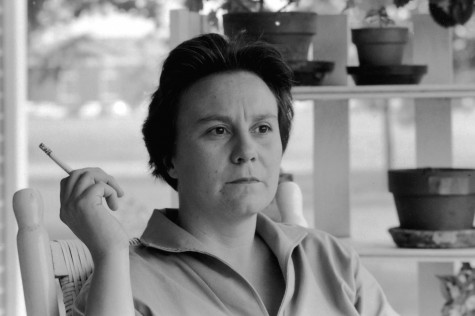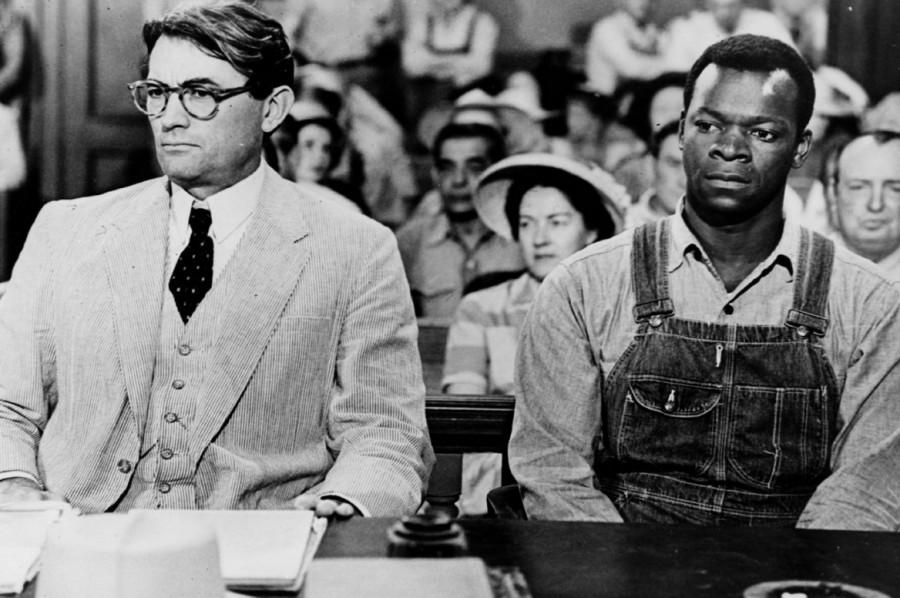The follow up to an American literary classic
To Kill a Mockingbird won the Pulitzer Prize and became an Oscar-winning film.
Literary agents and lawyers for Harper Lee, author of the critically acclaimed novel To Kill a Mockingbird, announced in February that she will be releasing a sequel of sorts to her only published book, which made her famous 55 years ago.
To Kill a Mockingbird won the Pulitzer Prize and turned Ms. Lee into a literary superstar at age 34. Her fame grew and a love of the material increased dramatically in 1962, when the book was turned into an Oscar-winning film starring Gregory Peck.
News that Ms. Lee, who said for decades that she would never publish another book, had suddenly changed her mind at age 88 did not sit well or seem “right” to much of the literary community and to many devoted fans.
The AMSA Voice spoke with English teachers Martha Richardson and Patrick Horgan to get their take on what the scheduled July 14 release of Go Set a Watchman, which continues the story of Scout and her father, Atticus Finch, approximately 20 years after the events of Mockingbird, will do to the legacy of Ms. Lee and her classic novel.
“It seems there are certain individuals taking advantage of her in her old age,” Mrs. Richardson said. “The whole story seems a little fishy.”
The Guardian ran a story on Feb. 8 in which Tonja Carter, the lawyer for Ms. Lee, said that the author was “extremely hurt and humiliated” that people felt she had been “duped.”
It was a common reaction among those in literary circles because of Ms. Lee’s repeated claims over the years that she wouldn’t publish again and because Ms. Lee is now mostly blind and deaf.
Regardless, there is universal excitement and intrigue about the forthcoming book, which is set amid the burgeoning civil rights movement of the 1950s. It promises to provide an interesting counterpoint to the events of Mockingbird, which deals with racial tension and discrimination in the South during the Great Depression.
“The 1950s was an interesting time because it was a time when there was a great deal of optimism in America [post World War II],” Mr. Horgan said. “This was the decade leading up to the civil rights movement of the 1960s that took up steam.”

Author Harper Lee in 1962, the year her classic novel was turned into a classic film.
But why wait so long to release another book, especially one that seems to cover material already explored?
“People go through stages in life and maybe she’s come to a point where she feels comfortable with it,” said Mrs. Richardson, who believes that Ms. Lee had fears the new book isn’t as developed as Mockingbird. “She thought it wasn’t good enough.”
Indeed, Ms. Lee actually started writing Watchman as her first novel. Her editor felt the flashbacks to Scout as a young girl were the best parts of the story and encouraged Ms. Lee to make them the focal point of a novel.
“I think a lot of it has to do with confidence issues with the author,” Mr. Horgan said. “A lot of careers are broken when people’s subsequent publications don’t quite measure up.”
It can be intimidating for authors who have reached a pinnacle of success to try and follow up a beloved book with another one equally as beloved and admired.
“I don’t know if she is being coerced,” Mr. Horgan said. “But all accounts seem to indicate she is lucid and maybe she thinks it’s time for this novel to see the light of day.”
Mr. Horgan explained that if Go Set a Watchman deals with a different aspect of the racial discrimination that To Kill a Mockingbird dealt with, then Ms. Lee’s book is long overdue.
“Tragically in 2015, we are seeing this resurgence of race and prejudice,” he said. “I think that if this book deals with any of the same things that To Kill a Mockingbird does, then it is an appropriate time for that issue to be examined again by one of the icons of American literature.”
As for reader reaction, both Mrs. Richardson and Mr. Horgan predict that it will be well received, but it will not be as popular as To Kill a Mockingbird.
“If the writing is similar to the writing in Mockingbird, it will be received very well,” Mr. Horgan said. “Will it have the legs of Mockingbird? I don’t know.”
Mr. Horgan also mentioned that with the rise of social media and the fall of attention spans, it is much harder for novels to achieve the kind of success they might have had in the past.
With the decline of her health, it might not be a surprise that Ms. Lee is trying to leave her final mark on a literary career built upon a single work.
“Every person, when they start to feel their own mortality, starts to think about their own legacy,” Mr. Horgan said. “Maybe she does see this as her final opportunity to make a statement about an issue she feels very, very strongly about.”

Anagha Indic is one of two co-editors for The AMSA Voice and a member of the Class of 2015. Anagha is an avid learner in pursuit of an engineering career.
She...







